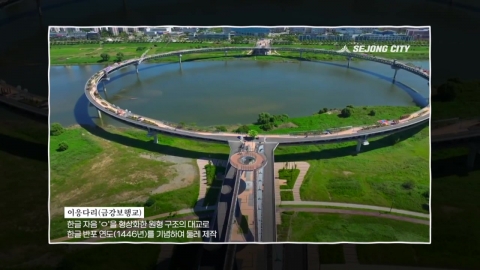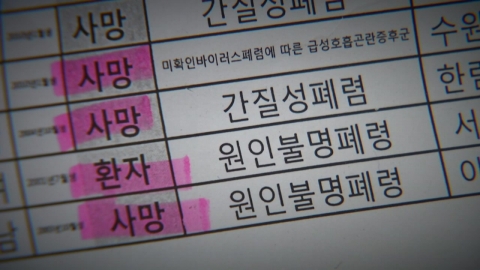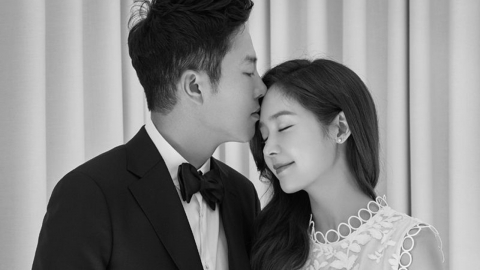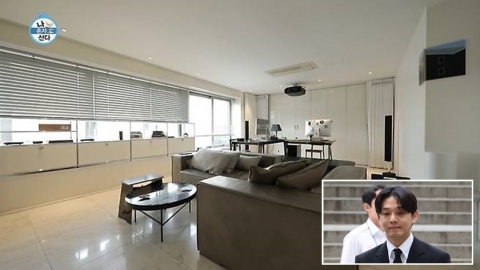[On-site Video+] Passes the plenary session of the motion to appoint three candidates for constitutional judges.
[Anchor]
Opposition parties, including the Democratic Party of Korea, held a plenary session of the National Assembly to vote on the appointment of three vacant constitutional judges.
The ruling party was absent, but it is likely to pass the resolution as it passes the quorum with 192 seats in the pan-night zone.
Let's go to the National Assembly.
[Won-Sik Woo / Speaker of the National Assembly]
Let me tell you the results of the vote. First of all, the Constitutional Court Judge Ma Eun-hyuk declares that out of the total 195 votes, 193 votes, one abstention, and one invalid vote were passed. The following Constitutional Court trials and political election proposals declare that out of the 195 total votes, 193 votes, one wealth, and one abstention were passed. The next Constitutional Court Judge Cho Han-chang declares that out of the total 195 votes, 185 votes, six votes, one abstention, and three invalid votes were passed. I'd like to say something before the next agenda.
Today, the National Assembly elected judges of the Constitutional Court, Ma Eun-hyuk, Jeong Gye-seon, and Cho Han-chang. This is the result of Article 11 of the Constitution, Article 6 of the Constitutional Court Act, which states that three of the judges of the Constitutional Court appoint persons elected by the National Assembly. As the National Assembly's process for the appointment of constitutional judges has been completed, the acting president should complete the appointment process without delay. It's not a matter of controversy. Our Constitution and law stipulate that the appointment process of three of the nine constitutional judges elected to the National Assembly should be elected and appointed to the plenary session after a confirmation hearing by the National Assembly. The Constitutional Society's consensus interpretation is that the exercise of the acting authority is natural because the president's appointment is a formal and procedural process, not the creation of a new constitutional order.
The Constitutional Court and the Supreme Court have stated the same position. In particular, the three constitutional judges were recommended by the agreement of the ruling and opposition parties. It is difficult to excuse the ruling and opposition parties' agreement over procedural appointments. It's not even right. Even though the act of appointment is not the subject of discussion between the ruling and opposition parties in the first place, asking them to agree on it means that they will not actually do it and violates the National Assembly's right to elect constitutional judges. Tomorrow is the first day to prepare for the president's impeachment trial. It is warm and urgent to restore the normal system of nine constitutional judges. Only when the normal operation of the constitutional institution is the way to resolve uncertainty in the country and the nine-member system is completed will any decision, whether or not, be able to minimize political and social confusion after the impeachment trial.
Delays or rejections of appointments to constitutional judges elected by the National Assembly are without justification. The acting president should fulfill his responsibilities in accordance with the Constitution, laws, and common sense of the people. There should be no other confusion in state affairs over the implementation of the procedures set by the law. The criterion for judging the value of everyone who eats rust of the people is the Republic of Korea and the people. There can be no exceptions. I reiterate that there should be a decision in the direction of reducing instability from the perspective of the people of the Republic of Korea. Schedule (4) From the amendment of the Framework Act on Education to Schedule 9.
※ 'Your report becomes news'
[Kakao Talk] YTN Search and Add Channel
[Phone] 02-398-8585
[Mail] social@ytn.co.kr
Opposition parties, including the Democratic Party of Korea, held a plenary session of the National Assembly to vote on the appointment of three vacant constitutional judges.
The ruling party was absent, but it is likely to pass the resolution as it passes the quorum with 192 seats in the pan-night zone.
Let's go to the National Assembly.
[Won-Sik Woo / Speaker of the National Assembly]
Let me tell you the results of the vote. First of all, the Constitutional Court Judge Ma Eun-hyuk declares that out of the total 195 votes, 193 votes, one abstention, and one invalid vote were passed. The following Constitutional Court trials and political election proposals declare that out of the 195 total votes, 193 votes, one wealth, and one abstention were passed. The next Constitutional Court Judge Cho Han-chang declares that out of the total 195 votes, 185 votes, six votes, one abstention, and three invalid votes were passed. I'd like to say something before the next agenda.
Today, the National Assembly elected judges of the Constitutional Court, Ma Eun-hyuk, Jeong Gye-seon, and Cho Han-chang. This is the result of Article 11 of the Constitution, Article 6 of the Constitutional Court Act, which states that three of the judges of the Constitutional Court appoint persons elected by the National Assembly. As the National Assembly's process for the appointment of constitutional judges has been completed, the acting president should complete the appointment process without delay. It's not a matter of controversy. Our Constitution and law stipulate that the appointment process of three of the nine constitutional judges elected to the National Assembly should be elected and appointed to the plenary session after a confirmation hearing by the National Assembly. The Constitutional Society's consensus interpretation is that the exercise of the acting authority is natural because the president's appointment is a formal and procedural process, not the creation of a new constitutional order.
The Constitutional Court and the Supreme Court have stated the same position. In particular, the three constitutional judges were recommended by the agreement of the ruling and opposition parties. It is difficult to excuse the ruling and opposition parties' agreement over procedural appointments. It's not even right. Even though the act of appointment is not the subject of discussion between the ruling and opposition parties in the first place, asking them to agree on it means that they will not actually do it and violates the National Assembly's right to elect constitutional judges. Tomorrow is the first day to prepare for the president's impeachment trial. It is warm and urgent to restore the normal system of nine constitutional judges. Only when the normal operation of the constitutional institution is the way to resolve uncertainty in the country and the nine-member system is completed will any decision, whether or not, be able to minimize political and social confusion after the impeachment trial.
Delays or rejections of appointments to constitutional judges elected by the National Assembly are without justification. The acting president should fulfill his responsibilities in accordance with the Constitution, laws, and common sense of the people. There should be no other confusion in state affairs over the implementation of the procedures set by the law. The criterion for judging the value of everyone who eats rust of the people is the Republic of Korea and the people. There can be no exceptions. I reiterate that there should be a decision in the direction of reducing instability from the perspective of the people of the Republic of Korea. Schedule (4) From the amendment of the Framework Act on Education to Schedule 9.
※ 'Your report becomes news'
[Kakao Talk] YTN Search and Add Channel
[Phone] 02-398-8585
[Mail] social@ytn.co.kr
[Copyright holder (c) YTN Unauthorized reproduction, redistribution and use of AI data prohibited]
Editor's Recomended News
The Lastest News
-
"Russia deploys more than 10 Oresynik units in Belarus"
-
U.S. officials say "signs of the downing of the Russian air defense system on the Azeri airliner."
-
재생
 Overturning a 1t truck on the freeway...a collision with a car that was changing lanes
Overturning a 1t truck on the freeway...a collision with a car that was changing lanes -
재생
 The final selection of 13 cultural cities in Korea...260 billion won spent for three years.
The final selection of 13 cultural cities in Korea...260 billion won spent for three years.
![[Weather] When the smog is relieved, it\'s very cold again...Heavy snow on the west coast amid cold weather warning](http://image.ytn.co.kr/general/jpg/2024/1227/202412270105055177_h.jpg)








